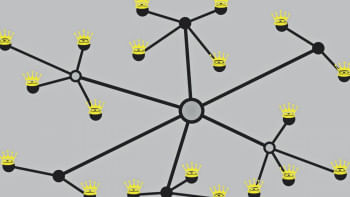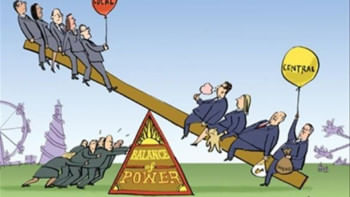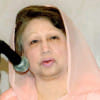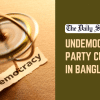Strong local government for developing democracy

A democracy works when all people, including the most marginalised, engage in the government process, have the ability to ask questions, and demand accountability. It is the local government where democracy can develop best. However, the long history of local government in Bangladesh has been marred by numerous issues that have hampered the formation of functioning institutions that provide democratic education to the local people. A stable union parishad, the lowest tier of local government, is crucial for the long-term development of rural communities and the strengthening of democracy.
Bangladesh has been striving to become a democratic developed nation since independence. However, political ups and downs, implementation of a one-party system, military regulations, and political parties jostling for power have jeopardised the country's democratic journey. The country's political difficulties are founded in its political culture. This culture has also harmed Bangladesh's efforts to democratise its local government structure.
In 2016, a paradigm shift occurred in the country's political system as local elections were held along party lines for the first time. The government says that local government elections can be more participatory if they are party-based. Now, although it is still too early to give a verdict on the party-based electoral system for local government, the developments around the elections so far—such as the volume of violence, complaints related to nominations, corruption, etc—send a negative message. As union parishad elections were previously held on a non-party basis, numerous neutral and locally popular candidates were able to be elected. But now, this does not happen as often. Furthermore, the nomination process has been tainted by corruption. As a result, the party-based approach to local government elections faces questions.
Union parishads can play the important role of reacting to local demands. For example, they can provide a framework for women's participation in political decision-making, and a chance to bring women to the centre of local development. It is unacceptable that female representatives, when elected as chairpersons or general members, are frequently ignored during decision-making only because they are women. Their participation in local government will allow for a mosaic of interests to be fulfilled and give us a pluralistic, integrated society.
On the other hand, however, party-based elections can provide an opportunity for locals to be conscious in selecting their leaders and increase their participation in the development process at the grassroots. Party-based elections allow elected representatives to reap the most benefits from the political government. The party in power thus gets to implement its programme at the local level with full support from its elected members in union parishads.
But administrative authorities at the union parishad level tend to be bureaucratic and estranged from the people. As a result, people are unable to participate fully in many local government activities.
The fragility of the local government's socio-economic base also continues to be a major impediment to democratic education. Plus, the unequal economic structure influences union parishads, making it so they are frequently trying to fulfil their parties' interests. As a result, local governments are unable to provide adequate services to the public. The presence of a local elite also discourages people from engaging with the union parishads, resulting in a less effective local government.
In addition, candidates who lose (and their supporters) often clash with the winners and refuse to collaborate with the elected members, making the work of elected parishads difficult. National political activities are also forced onto the grassroots-level units in many ways. As a result, people at the local level become divided along political lines and do not try to coexist productively. Moreover, in rural Bangladesh, a patron determines a candidate's political engagement, and this patron-client relationship jeopardises the local government's ability to play an effective role in democratic development and also turns the vast majority apolitical.
Democratisation of political parties is the first step towards having an ideal democracy. The key task for a political party now will be to organise itself with dedicated supporters who will guide the party's wheel at the grassroots level.
Union parishads can play the important role of reacting to local demands. For example, they can provide a framework for women's participation in political decision-making, and a chance to bring women to the centre of local development. It is unacceptable that female representatives, when elected as chairpersons or general members, are frequently ignored during decision-making only because they are women. Their participation in local government will allow for a mosaic of interests to be fulfilled and give us a pluralistic, integrated society.
Strong political will is required for the democratisation of local government organisations in Bangladesh to be effective. In order for progress to be meaningful, people must be personally involved in the formulation and implementation of decisions. This calls for decentralisation of democracy to the most fundamental level. Moreover, political education for the masses and the formation of public opinion on government policies, roles, and functions is the need of the hour. Institutionalisation of party operations—that is, the development of a political education plan and a code of conduct for parties—is critical.
Dr Mohammad Tarikul Islam is professor at the Department of Government and Politics in Jahangirnagar University.
Views expressed in this article are the author's own.
Follow The Daily Star Opinion on Facebook for the latest opinions, commentaries and analyses by experts and professionals. To contribute your article or letter to The Daily Star Opinion, see our guidelines for submission.


 For all latest news, follow The Daily Star's Google News channel.
For all latest news, follow The Daily Star's Google News channel. 









Comments